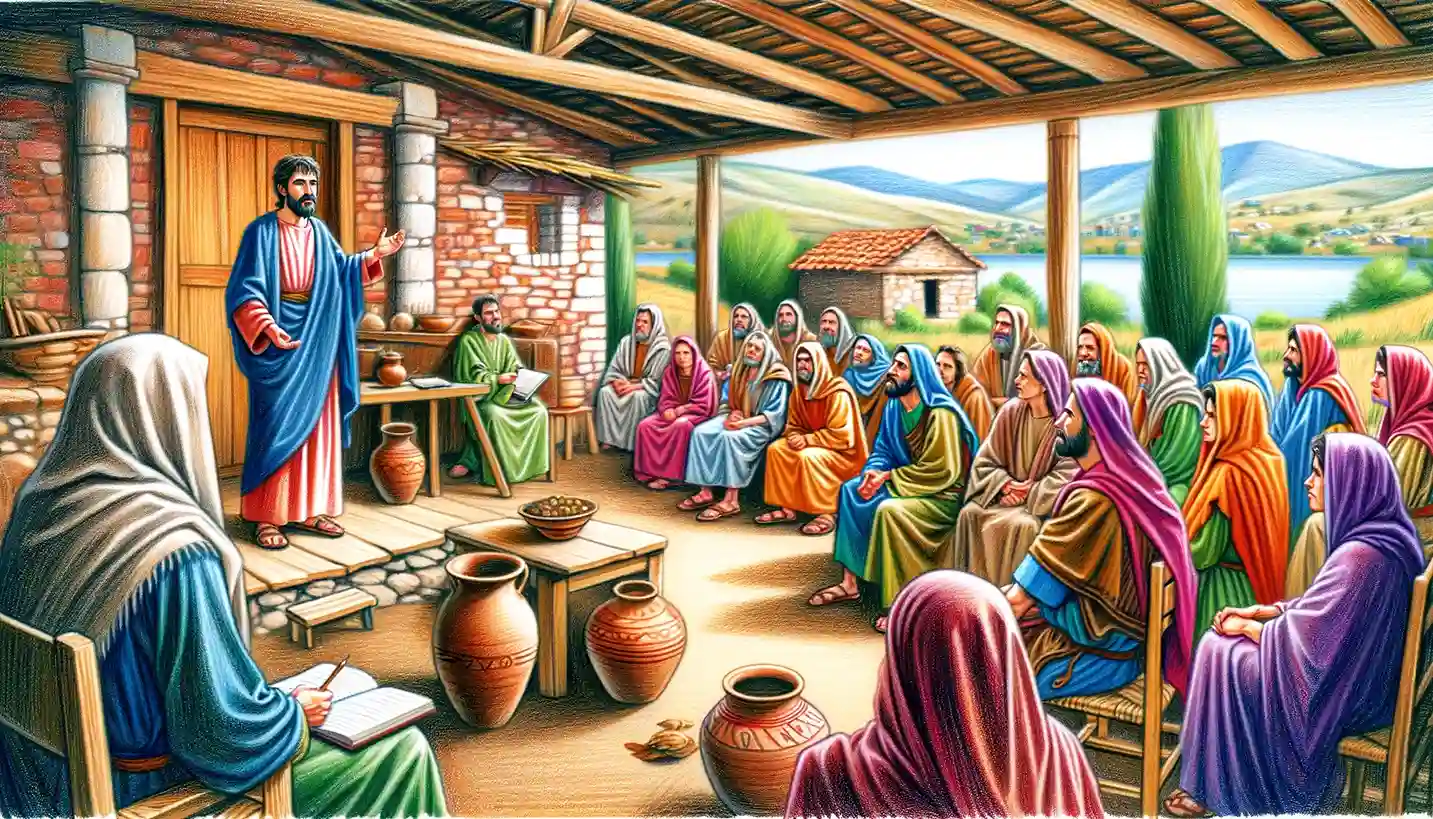
Philippians: A Beacon of Joy and Unity in Early Christianity
The church at Philippi was the first Christian community established by the Apostle Paul on European soil, in the city of Philippi, a Roman colony in Macedonia. This church is notably addressed in the New Testament in the Epistle to the Philippians. Here are some quick facts about this early Christian community:
- Founding: The Philippians church was founded around AD 49-50 during Paul’s second missionary journey, following a vision in which he was called to preach in Macedonia.
- Notable Members: Among its early members were Lydia, a dealer in purple cloth, who was the first convert and whose home initially served as the meeting place for the church.
- Characteristics: The church was known for its generosity, exemplified by their financial support to Paul when other churches did not.
- Paul’s Relationship: The Apostle Paul maintained a close and affectionate relationship with the Philippians, reflected in his warm and personal letter to them while he was imprisoned.
- Epistle to the Philippians: This letter highlights themes of joy, humility, and unity, encouraging believers to live lives worthy of the Gospel.
- Impact: Despite facing internal and external challenges, the church at Philippi is often portrayed as a model of early Christian devotion and community.
Historical and Cultural Context
The city of Philippi, named after Philip II of Macedon, the father of Alexander the Great, was a significant Roman colony in Macedonia by the time Paul visited during his second missionary journey around AD 49-50. It was located along the Via Egnatia, the main east-west road across the Roman Empire’s Balkan provinces, enhancing its strategic and economic importance. The population was diverse, including Romans, Greeks, and a variety of other ethnic groups, which influenced the early Christian teachings adapted by Paul to address a primarily Gentile audience.
The Founding of the Church
According to Acts 16, Paul founded the church in Philippi after a vision directed him to bring the Gospel to Macedonia. The conversion of Lydia, a prosperous dealer in purple cloth, marks the beginning of the Philippian church. Lydia’s conversion and her subsequent hospitality, offering her home as a place for believers, underscore the significant role of women in the early Church. The account also notes the dramatic conversion of a jailer following an earthquake, highlighting the miraculous and challenging circumstances surrounding the church’s establishment.
Theological Themes and Paul’s Relationship with the Church
Paul’s Epistle to the Philippians, written from prison, reflects his close and supportive relationship with this church, characterized by mutual love and respect. This letter is less doctrinal compared to other Pauline epistles and focuses more on practical Christian living. Key themes include:
- Joy and Rejoicing: Despite his imprisonment, Paul speaks about joy in Christ over 16 times in the letter. This theme teaches that joy is based on spiritual realities and communion with Christ, rather than external circumstances.
- Humility and Unity: Paul exhorts the Philippians to unity through humility, using Christ’s incarnation and sacrifice as the ultimate example (Philippians 2:5-11). This passage, known as the Kenosis Hymn, is crucial for understanding Christ’s self-emptying and servant leadership.
- Generosity and Provision: The Philippians’ financial support of Paul, especially noted in Philippians 4:15-19, illustrates the early Christian practice of koinonia—fellowship and sharing resources. Paul praises their generosity and promises that God will meet all their needs according to His riches.
Impact and Legacy
The church at Philippi represents a model of early Christian faith and practice. Their response to Paul’s teachings, characterized by their spiritual maturity and readiness to support missionary work, sets a precedent for future Christian communities. The lessons from Philippians continue to inspire contemporary Christian thought, emphasizing joy, unity, and the practical implications of living a life committed to Christ.
The enduring message from the Philippians church’s experience is the power of the Gospel to bring diverse people together into a cohesive, supportive community, deeply committed to each other and to the spread of the Christian faith.



